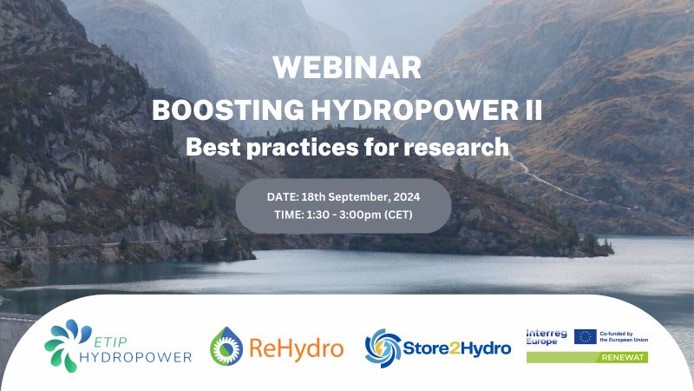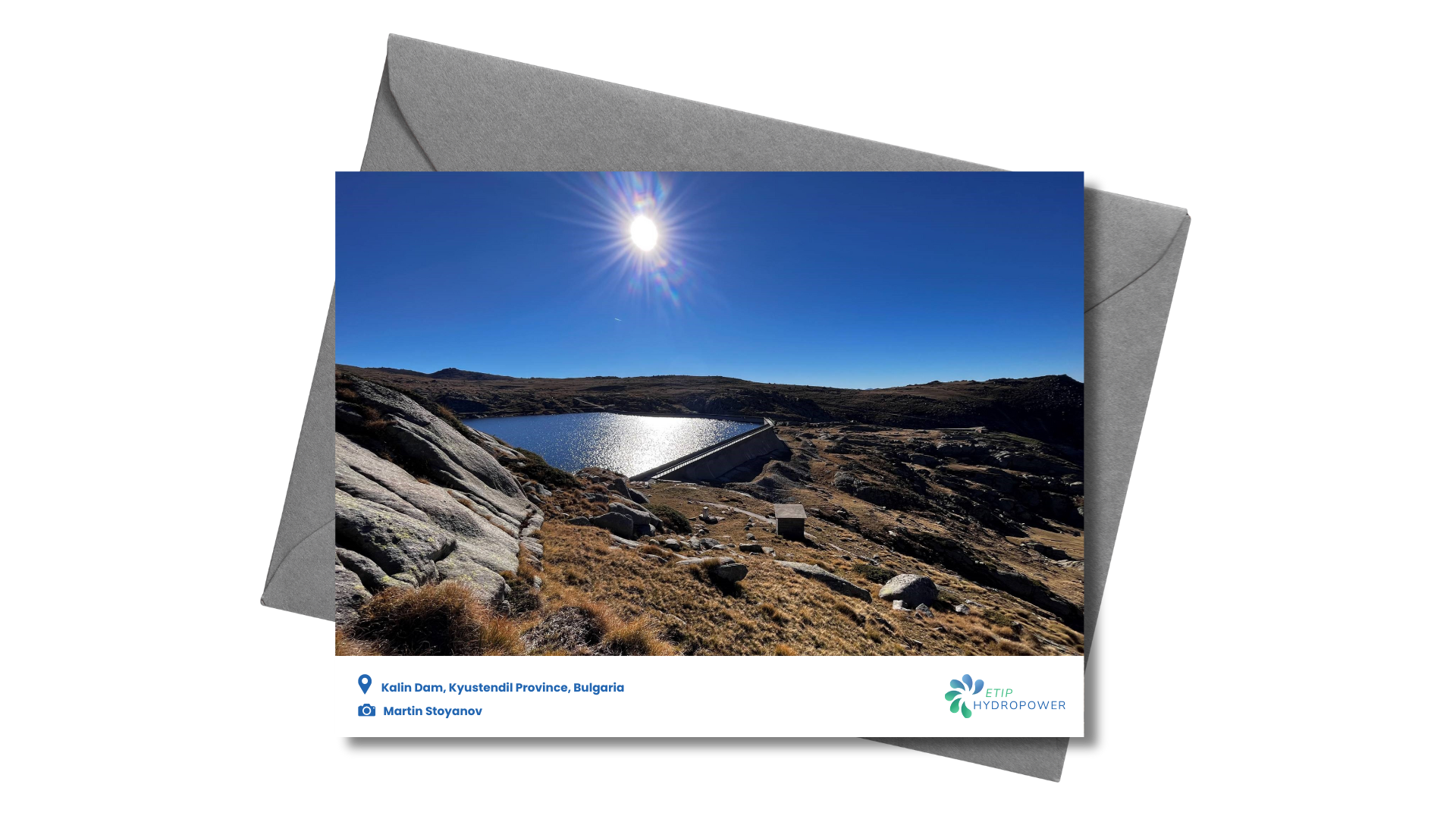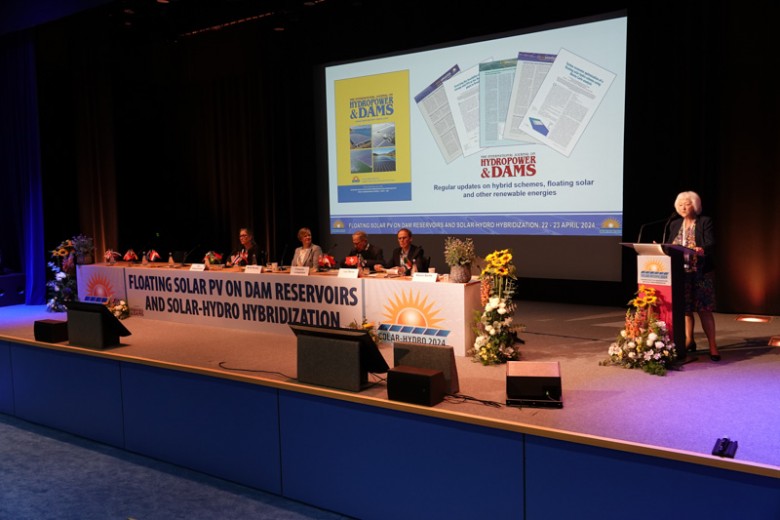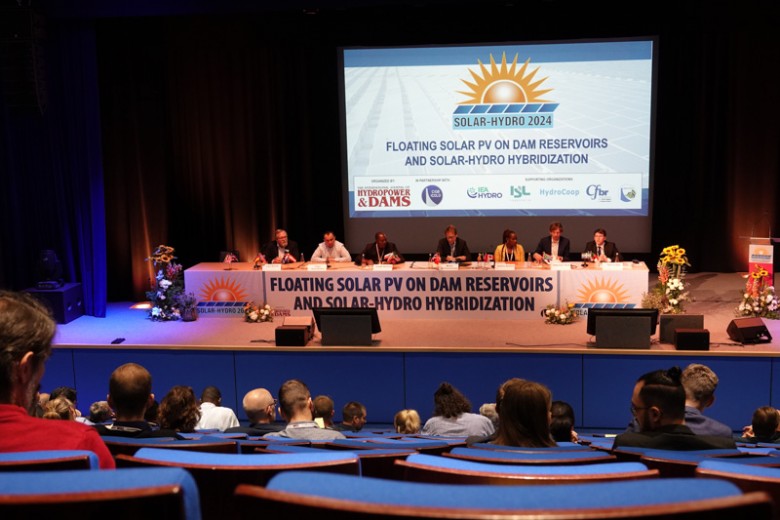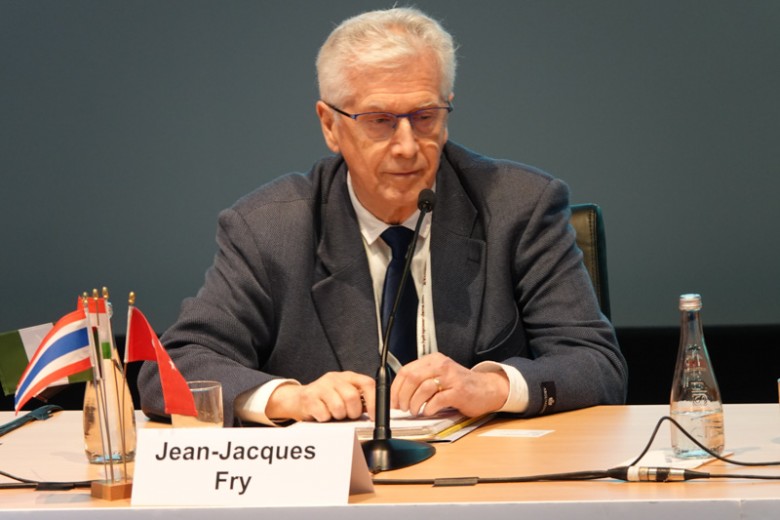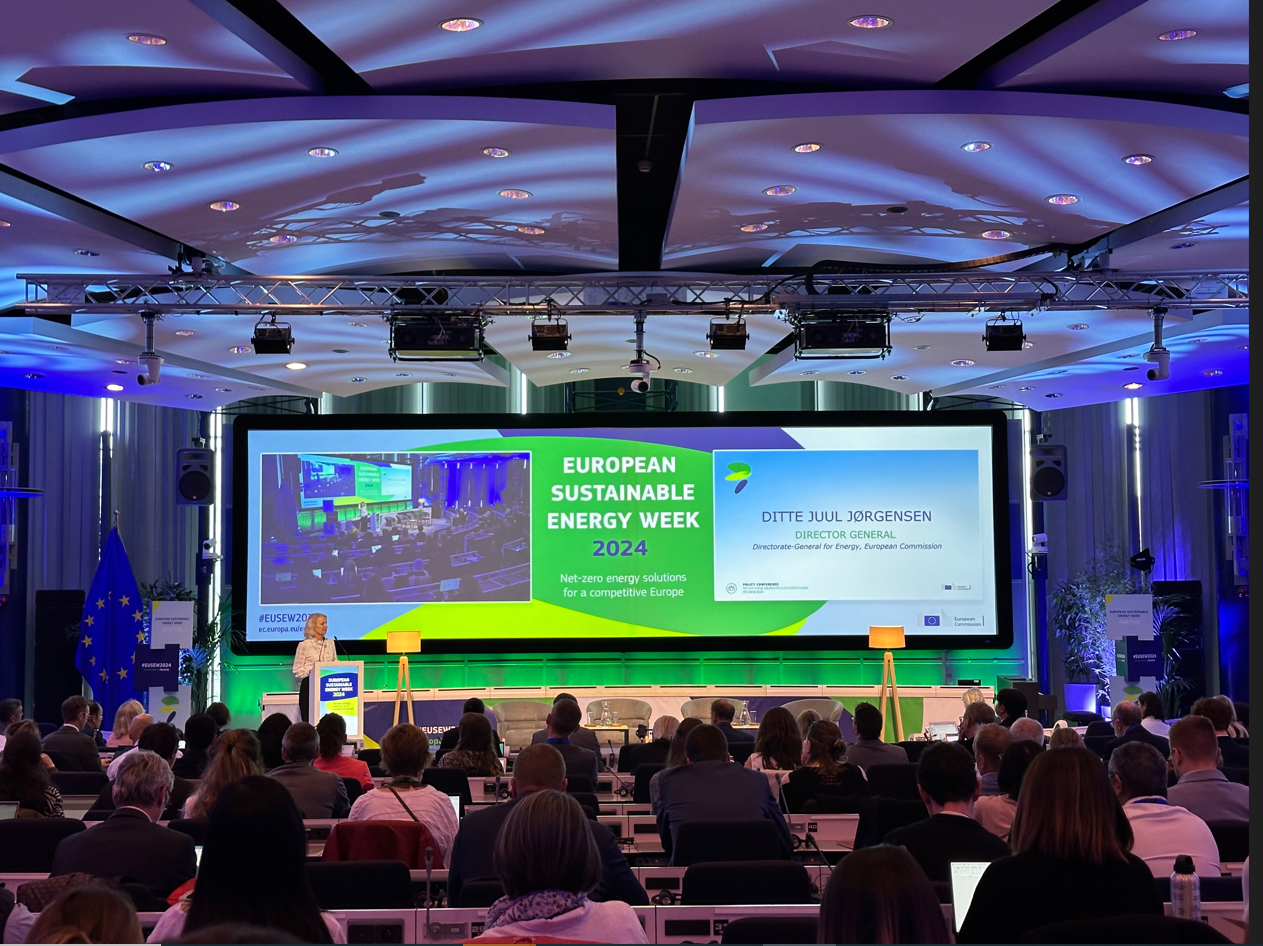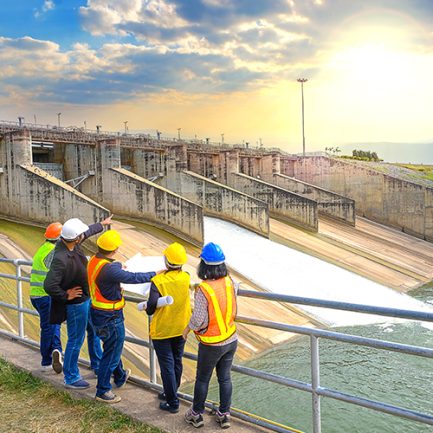UNIFYING THE VOICES OF HYDROPOWER
PEN@HYDROPOWER COST ACTION conference
Join on 23 September at the Université Libre de Bruxelles for a landmark event hosted by PEN@hydropower COST Action. This hybrid event, accessible both in person and online, will bring together experts and key stakeholders to explore the current and future landscape of hydropower in Europe.
Key Discussions:
-
- Panel 1: "Ambassadors for European Hydropower"
This session will delve into the challenges and opportunities facing hydropower today, highlighting its evolving role in Europe’s energy transition. - Panel 2: "Education and Skills: The Future of Hydropower"
A forward-looking panel discussing the skills required for the future of the hydropower sector. The conversation will focus on addressing current gaps in education and preparing the next generation of professionals.
Speakers will include representatives from the European Commission, EERA, COST, TU Wien, Eurelectric, and other notable organisations.
- Panel 1: "Ambassadors for European Hydropower"
Special Feature: HydroClip Competition
As a highlight, the event will announce the winners of the HydroClip competition, which invited students to creatively depict hydropower through short videos on TikTok and Instagram. These young voices will offer fresh perspectives on the future of hydropower, showcasing innovative contributions from across Europe.
This event promises to be a significant moment for those interested in the future of sustainable energy in Europe.
REGISTER:
-
-
- Online: https://tuwien.zoom.us/meeting/register/u5YuceqprzIpH9B1GWl_KFnajz6WgPoEQLq4
- On-site: https://forms.gle/TbiJsfE7gj5ptgxN7
-
WEBINAR: Boosting Hydropower: Best Practices for Research with ReHydro, Store2Hydro and RenewatOn 18 September 2024, from 1:30PM to 3:00PM CET, the latest session in the "Boosting Hydropower: Best Practices for Research" webinar series will present recent advancements in hydropower technology. Organised under the ETIP HYDROPOWER project, this session will highlight three EU research projects. Featured Projects and Presenters:
Additionally, the webinar will feature contributions from Emanuele Quaranta of the Joint Research Centre (JRC) and Anton Schleiss from the International Commission on Large Dams (ICOLD), who will represent ETIP HYDROPOWER. This webinar provides an opportunity to learn about the latest research developments in hydropower across Europe. How to Join:Interested participants can register for the webinar HERE. |
ETIP HYDROPOWER Announces the winners of the summer postcard contest and wishes you a great summer holiday!The ETIP HYDROPOWER team is announcing the winners of the Summer Postcard Contest. The contest, which aimed to capture the beauty and power of hydropower through photography, showcased the aesthetic beauty of hydropower. Winning Photographs:
Both winners will have their photos featured on ETIP HYDROPOWER's official postcards and social media channels and will also be used to greet all our members. These will be used to promote the importance of hydropower in achieving a sustainable future. The winning photographs are now available on our social media channels. Follow us to stay updated on our initiatives and to see more inspiring content from the hydropower community. For more information, visit the social media and join the conversation with the hashtags #HydroSummer #HydroPhotoContest.
|
SOLAR-HYDRO 2024: Pioneering the Future of Renewable Energy in Juan-les-Pins AntibesOn April 22 and 23, the picturesque town of Juan-les-Pins Antibes hosted SOLAR-HYDRO 2024, an event dedicated to exploring the global potential and progress in solar-hydro power. The conference focused on critical areas such as safety, new technology, environmental aspects, and finance, attracting industry leaders and experts from around the world.
ETIP HYDROPOWER, represented by our esteemed member Jean-Jaques FRY made a significant impact at the event, presenting three key strategies to enhance Floating Solar PV (FPV) deployment in Europe:
During the event, several topics requiring further research and innovation were identified:
To support the final point, the Swiss Federal Office of Energy announced the formation of a working group to develop directives for FPV projects in Switzerland. For a detailed summary of the presentations and discussions, refer to Alison Bartle's article in the International Journal on Hydropower & Dams, Volume 31, Issue 3, pages 76-89.
|
Anton Schleiss (ICOLD) Highlights Hydropower’s Role in Energy Transition at 12th East Asian Dam ConferenceAnton Schleiss, a key member of the ETIP HYDROPOWER Coordination team, was invited to deliver a one-hour keynote lecture at the 12th East Asian Dam Conference (EADC). This event was part of the International Symposium on Sustainable Development and Management of Dams and Reservoirs for Future Generations, held on June 3rd, 2024, in Nagoya, Japan. More information about the event can be found here. In his keynote address, titled "The Sustainable Use and Extension of Hydropower Reservoirs is Vital to Ensure the Energy Transition," Schleiss emphasized the critical role that hydropower reservoirs play in Europe. In the second part of his lecture, he highlighted how these reservoirs and dams are essential in mitigating the ongoing energy crisis and how they act as catalysts and enablers for the European Green Deal. Schleiss presented the outcomes of HYDROPOWER EUROPE, showcasing the project's contributions to advancing sustainable hydropower solutions. Additionally, he discussed the ongoing activities of ETIP HYDROPOWER, underscoring the initiative's efforts to promote innovation and collaboration within the hydropower sector. His presentation underscored the necessity of sustainable hydropower development to support the energy transition and ensure a resilient and environmentally friendly energy future for Europe and beyond.
ETIP HYDROPOWER participated in the European Sustainable Energy Week ( EUSEW) 2024. The event, which took place at the Charlemagne building, brought together experts, policymakers, and industry stakeholders to discuss and showcase innovations driving Europe’s transition toward sustainable energy sources. At their stand (C-24), ETIP HYDROPOWER collaborated with other influential organizations, including the International Hydropower Association (IHA), ETIPsFORUM, ETIPSNET, and BRIDGE. Together, they highlighted the latest advancements in hydropower technology, policy, and research. Visitors engaged with an interactive Fishing Game, where participants had the opportunity to win prizes while learning about the benefits of the different ETIP's inside #ETIPsForum. ETIP HYDROPOWER expressed gratitude to all attendees and emphasized the importance of collective efforts in advocating for a sustainable and energy-efficient Europe. As the world continues to address climate change and seek cleaner energy alternatives, events like EUSEW play a crucial role in fostering collaboration and knowledge exchange. ETIP HYDROPOWER remains committed to driving positive change and contributing to a greener future for Europe and beyond. Thank you to everyone who visited our stand and joined us in advocating for a sustainable and energy-efficient Europe. Let's continue to drive the change towards a greener future!
#EUSEW2024 #WaterWiseEU #EnergyTransition #SustainableFuture #Hydropower #Innovation #GreenEnergy #Collaboration #EuropeEnergy
|
ETIP HYDROPOWER Announces Virtual Postcard Summer EditionETIP HYDROPOWER is pleased to announce the launch of the Virtual Postcard Summer Edition, inviting all stakeholders to participate in a photography initiative celebrating the synergy between hydropower facilities and their natural environments. This edition focuses on capturing the beauty, power, and sustainability of hydropower as it integrates seamlessly with the landscapes, highlighting the theme of summer. Participants are encouraged to submit stunning images that reflect the essence of hydropower within its natural surroundings. These photographs will be used to convey summer greetings to all ETIP HYDROPOWER stakeholders and will be featured across all ETIP HYDROPOWER communication channels. By showcasing the harmony between technology and nature, we hope to inspire greater appreciation and support for renewable energy solutions. We look forward to your contributions and to celebrating the vibrant spirit of summer through the lens of hydropower. All entries must be received by 28 June 2024 no later than 11:59 PM CET For more details on participation and submission guidelines, please click here |
Call for Expert Applications: Development of Safety Directive for Water Retaining Facilities with Appurtenant InstallationsThe Swiss Federal Government oversees the construction and modification of large water retaining facilities (WRFA, SR 721.101). Any changes to these facilities, including dams, reservoirs, and safety-relevant auxiliary installations, require planning approval to ensure technical safety (WRFA art. 6). This extends to modifications from appurtenant installations like floating photovoltaic platforms, heliports, wind turbines, etc. The Swiss Federal Office of Energy (SFOE), specifically its Dam Supervision Section (TS), is responsible for the technical safety assessment of large dams. The SFOE is calling for expert applications to develop a directive (Part F) on the safety of water retaining facilities with appurtenant installations. This directive will outline the minimum safety recommendations needed. The working group will draft the directive in three phases:
Experts are sought in areas such as anchoring, dam design, floating structures, geology, instrumentation, civil engineering, meteorology, natural hazards, and risk management. The working group will include 10-15 experts and involve three face-to-face sessions, three online sessions, and eleven and a half days of work, totaling sixteen days by March 2026. Applications, including CVs and fixed daily rates, must be submitted by June 30, 2024, to Thomas Menouillard at the SFOE.
Contact: Thomas Menouillard Swiss Federal Office of Energy, SFOE Pulverstrasse 13, 3063 Ittigen Email: thomas.menouillard@bfe.admin.ch Read more about the application by clicking here |
ETIP HYDROPOWER Prepares for the European Sustainable Energy Week 2024 Energy FairThe countdown begins for one of the most anticipated events in the sustainable energy sector, the European Sustainable Energy Week #EUSEW2024 Energy Fair. Set to take place from June 11th to the 13th, the fair will open its doors at the Charlemagne building and you could find ETIP HYDROPOWER at the ground floor, stand C-24. This year’s theme, ‘Collaborative Energy Transition for Europe’s Future,’ aims to foster discussions and collaborations that will shape a sustainable future for all. At the booth we will share the space together with organizations such as the International Hydropower Association (IHA), ETIPsFORUM, ETIPSNET, and BRIDGE, who will also be sharing insights and innovations in renewable energy. Visitors are invited to engage with industry leaders and contribute to the dialogue on advancing clean energy solutions. For more information on the EUSEW 2024 Energy Fair and to participate in shaping a sustainable future:
#EUSEW2024 #CleanEnergyEU #EnergyTransition #SustainableFuture #ETIPsForum #ETIPSNET #Hydropower #BridgeH2020 #IHA #RenewableEnergy #EUInnovation #GreenTech |
Denis Aelbrecht and Anton J. Schleiss Honored Among the 75 Most Influential People in HydropowerThe "75 Most Influential People in Hydropower" list has been released by International Water Power & Dam Construction. This list recognizes individuals who have made significant contributions to hydropower development, and from ETIP HYDROPOWER we want to acknowledge the work of all those featured on the list. The list includes Denis Aelbrecht, Head of Technology at EDF Hydro Engineering Center, whose leadership roles within the Comité Français des Barrages et Réservoirs (CFBR) and as Chair of the ETIP HYDROPOWER Governing Board demonstrate his impact on the industry. Anton J. Schleiss, with his extensive career in hydraulic engineering and dam construction, is also recognized. His role as the technical coordinator of ETIP HYDROPOWER highlights his continued involvement in the hydropower sector. The individuals featured on this list represent the collaborative and innovative spirit that drives the hydropower industry. Their work contributes to the advancement of sustainable energy solutions and resilience. Read the full article here #Hydropower #Innovation #Sustainability #ETIPHYDROPOWER #HydropowerExcellence
|

